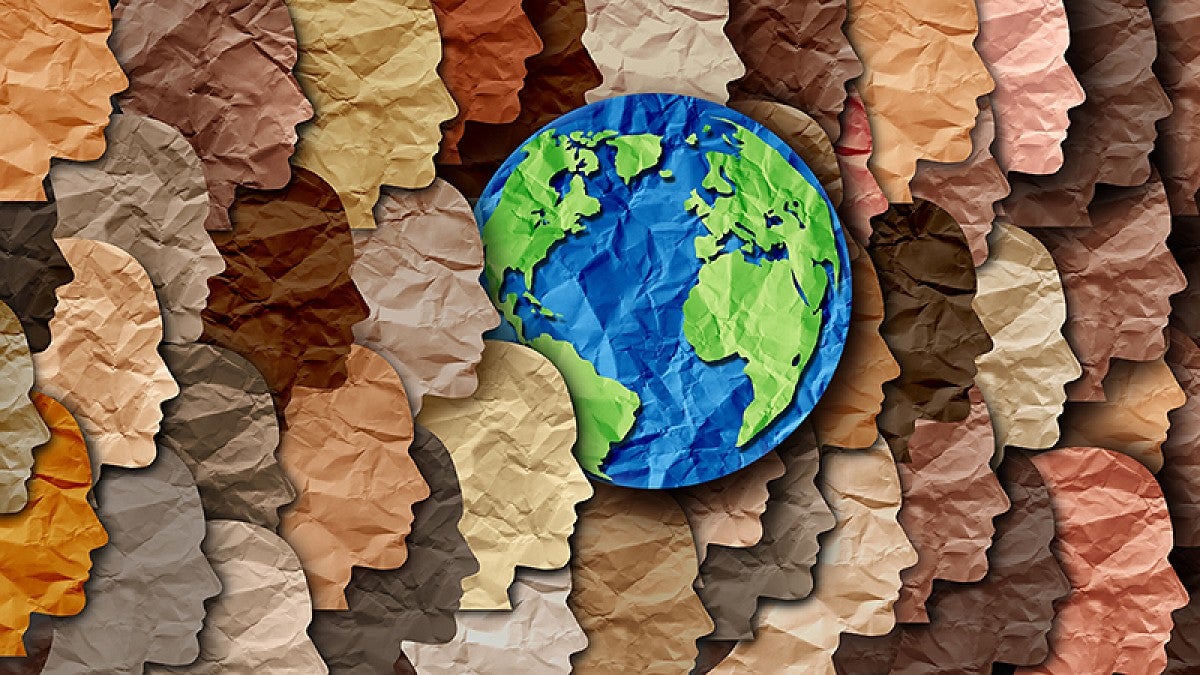The University of Oregon’s Environment Initiative is hosting a series of events on campus in coming weeks called UO by Environmental Justice and focused on higher education’s contribution to a just and livable future.
The events are organized by the Center for the Study of Women in Society, the Just Futures Institute, the Climate Change and Indigenous Peoples project, and the Student Sustainability Center, with support from the Environment Initiative and the Office of the Vice President for Research and Innovation.
“This series of events reflects our faculty and students’ recognition of the vital intersection between environmental protection and questions of equity and justice at the forefront of our work to address climate change and the transition we face,” said Adell Amos, the Environment Initiative’s executive director.
“As we work together toward climate solutions, we recognize that climate change will have disproportionate impacts,” Amos said. “This means scrutinizing solutions to ensure that they do not exacerbate environmental injustices and working to build resilience in communities that are on the frontlines. ”
The Environment Initiative is a campuswide, coordinated hub focused on higher education’s contribution to a just and livable future. As a platform that supports and amplifies the applied work of faculty members and students, the Environment Initiative offers a hub for community engagement.
Sangita Gopal, director of the Center for the Study of Women in Society and associate professor of cinema studies, said she was excited about the new partnership with the Environment Initiative.
“There is no environmental justice without gender justice,” she said. “Our goals are deeply aligned with those of UO by Environmental Justice. We cannot talk about feminist futures without engaging the environmental question.”
Alai Reyes-Santos, a professor of practice in the School of Law and associate director of the PNW Just Futures Institute for Climate and Racial Justice, said developing solutions to environmental and climate crises requires engagement with those communities most affected and with fewer resources to adapt, including those who identify as Indigenous, Black, Latinx, Asian American, economically vulnerable, rural, immigrant, people with disabilities and LGBTQ+, among others.
“This series of events invites us to engage environmental justice in ways that will speak to us, our neighbors and the world, from art to storytelling and research,” she said. “And the time to learn and act is now.”
Here’s a listing of UO by Environmental Justice events:
April 24-May 4: “Ghost Forest,” an exhibition by Sarah Grew, featuring Jon Bellona’s sound installation “Wildfire,” at LaVerne Krause Gallery, Lawrence Hall. Hours: 9 a.m. to 6 p.m. Monday to Thursday, additional hours April 28-30.
April 25: “Native Ecologies” panel discussion with panelists Joe Scott, Kari Marie Norgaard and David G. Lewis in Room 115, Lawrence Hall. A “Ghost Forest” opening reception immediately follows in the Lawrence Hall lobby. Hours: 4-6 p.m.
May 1: Andrew Yang, professor at the School of the Art Institute of Chicago and a research associate at the Field Museum of Natural History, delivers this year’s Fuller Lecture, “Moving Landscapes and their Entangled Ecologies.” Ford Lecture Hall, Jordan Schnitzer Museum of Art, 4 p.m.
May 1: “Storytelling, Public Scholarship, and Capacity Building in Environmental Justice,” a virtual work in progress panel and public conversation. Hours: 3:30 to 5 p.m.
May 2-7: Abundance 2023, a Student Sustainability Center conference featuring educational talks, workshops, and volunteer opportunities for students and other UO community members to engage with the idea of abundance. The keynote speech by Alexis Nikole Nelson takes place from noon to 1 p.m. in the EMU Redwood Auditorium.
May 2: Michelle Murphy, professor of history and women and gender studies at the University of Toronto, delivers the 2023 Acker-Morgen Lecture as a closing event to “Ghost Forest,” 4:30 to 6 p.m., Room 177, Lawrence Hall.
May 2: Jen Rose Smith (dAXunhyuu), assistant professor of geography and American Indian studies at the University of Wisconsin-Madison, delivers the 2023 Climate Change and Indigenous Peoples Lecture, 7 p.m., Many Nations Longhouse.
May 3: Awakening our Ancestral Ecological Wisdom and Abundance: a workshop by the Healers Project, 2-3 p.m., Lease Crutcher Lewis Room, EMU.


